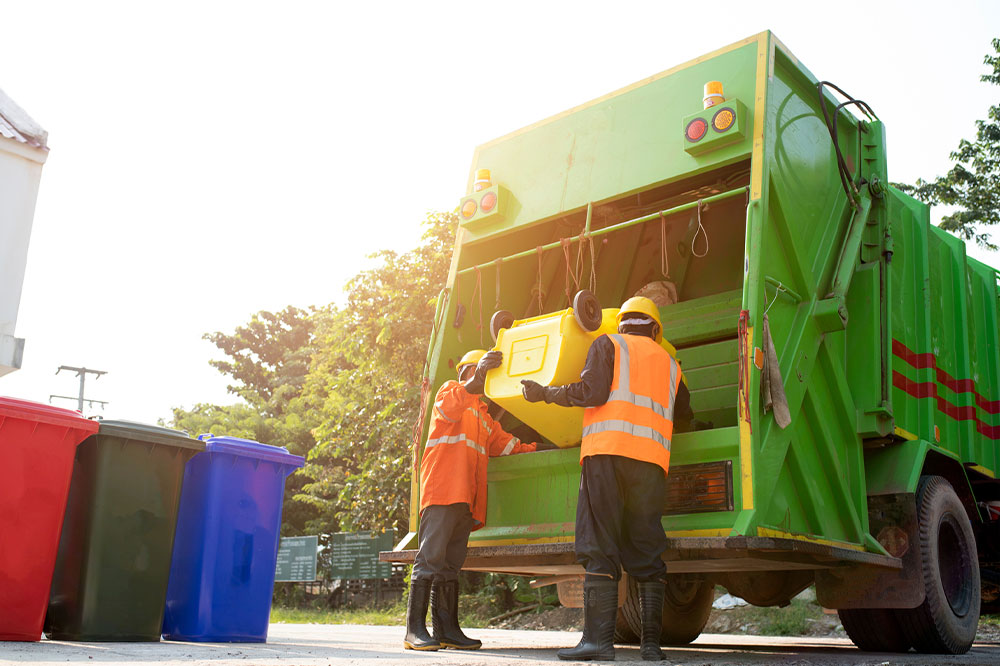Ultimate Guide to Free and Secure Disposal of Confidential Documents
Learn comprehensive methods to securely and freely dispose of sensitive documents. This guide highlights community shredding events, secure containers, best practices, and environmental benefits. Protect your personal and business information while supporting eco-friendly recycling efforts, ensuring confidentiality and environmental sustainability.

Ultimate Guide to Free and Secure Disposal of Confidential Documents
In both household and professional environments, protecting sensitive information is of utmost importance. Properly disposing of confidential documents such as bills, bank statements, personal records, and business paperwork not only helps prevent identity theft but also maintains a clutter-free and organized space. This comprehensive guide will explore the various safe and free methods for shredding and disposing of sensitive documents, highlight community programs, and discuss best practices for ongoing secure document management. By understanding and utilizing these methods, individuals and organizations can ensure privacy, environmental sustainability, and peace of mind.
Protection of confidential information is vital in today’s digital and physical world. Improper disposal of sensitive documents can lead to identity theft, financial fraud, and breach of privacy. Fortunately, many communities and organizations offer free, accessible, and environmentally friendly methods for confidential document disposal. These services include scheduled community shredding events, mobile shredding trucks, secure disposal containers, and official certificates of destruction. Leveraging these resources can help maintain security while promoting recycling and environmental responsibility.
Comprehensive Steps for Free Confidential Document Disposal
Proper planning and execution are key when it comes to secure document disposal. Here are detailed steps to help you dispose of your sensitive papers safely without incurring any costs:
Scheduling a Convenient Date – Begin by selecting the most suitable time for shredding or disposal. Many communities coordinate regular shredding events, so stay informed through local notices or online community boards to know when these services are available. For organizations, scheduling pickup services with secure shredding companies is also an option. Planning ahead ensures you won’t rush when sorted documents are ready for destruction.
Utilizing On-site Shredding or Drop-off Locations – Local community centers, police stations, libraries, or shopping malls often host free shredding events periodically. These events typically accept small quantities of documents for secure shredding. If you have a larger volume, check if mobile shredding trucks are scheduled to visit your area or if there are designated drop-off points for secure disposal. For frequent document disposal, organizations can capitalize on secure shredding bins or containers that are lockable and suitable for ongoing use in offices or facilities.
Secure Transportation and On-site Destruction – When participating in a community shredding event, documents are typically collected and shredded on-site, either in front of attendees or in secured containers. For larger or ongoing needs, certified shredding companies provide secure collection services, where professionals handle transportation and destruction in compliance with privacy standards. Ensuring that documents are transported and destroyed in a secure manner is essential for maintaining confidentiality.
Recycling Shredded Paper – Post-shredding, the paper waste is processed into pulp and reused in manufacturing various paper products, such as tissue, cardboard, or recycled paper. Recycling shredded paper not only supports environmental sustainability but also minimizes landfill waste. Always verify that your shredding provider recycles the waste material in an eco-friendly manner.
Using Secure Disposal Containers for Continuity – Businesses and offices aiming for ongoing secure document management should invest in lockable shredding bins or containers. Regular collection services ensure that sensitive documents are securely stored until destruction, reducing risks of accidental exposure. These containers are specially designed to prevent unauthorized access and facilitate compliance with privacy regulations.
Obtaining Certificates of Destruction – Many professional shredding services and community programs offer certificates of destruction as proof that confidential documents have been securely destroyed. These certificates are valuable for compliance purposes, legal records, and for establishing trust with clients and partners. Always request or retain documentation of disposal for your records.
Additional Tips for Secure Document Disposal
Beyond attending community events and using secure containers, consider adopting best practices to reinforce your document security:
Regularly review and purge documents – Establish a routine for reviewing stored documents and purging any that are no longer necessary. This minimizes accumulation and reduces the volume needing disposal.
Implement a clear disposal policy – For organizations, create written policies outlining how and when sensitive documents are securely destroyed to ensure consistency and compliance.
Educate staff and family members – Train personnel and household members on the importance of secure disposal and how to properly shred or dispose of sensitive papers.
Leverage digital alternatives – Whenever possible, switch to digital storage and online billing to minimize paper waste and simplify secure disposal.
The Environmental Impact of Proper Disposal
Proper disposal of confidential documents through shredding and recycling significantly benefits the environment. Shredded paper is an excellent raw material for manufacturing recycled paper products, reducing the need for virgin pulp and conserving natural resources. Recycling also reduces greenhouse gas emissions from waste in landfills and minimizes pollution during manufacturing processes. By choosing community shredding events and certified recycling programs, you contribute to a circular economy that values sustainability alongside privacy protection.
Conclusion: Protect Your Privacy While Contributing to Sustainability
Securely disposing of confidential documents is a responsibility that everyone should take seriously. Thanks to numerous free community services, secure containers, and certified shredding providers, you can protect your personal and business information at no cost. Incorporating regular disposal routines, leveraging eco-friendly practices, and understanding the importance of certificates of destruction can elevate your document management standards. Ultimately, safe disposal ensures your privacy remains intact and supports the broader goal of environmental sustainability. Whether at home or in a professional setting, adopting these practices will safeguard your sensitive data and contribute positively to the environment.





